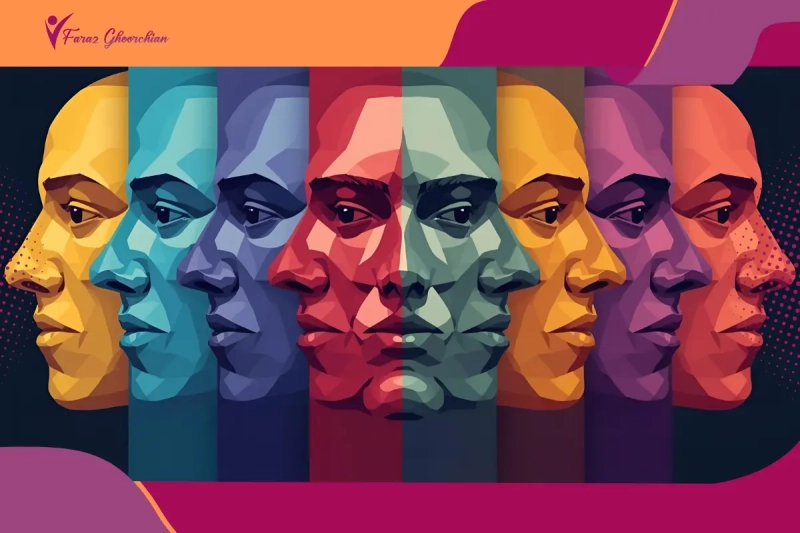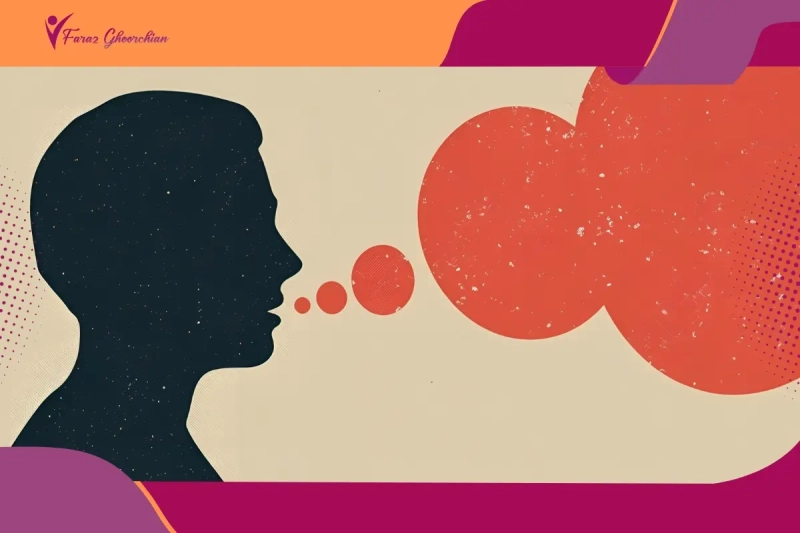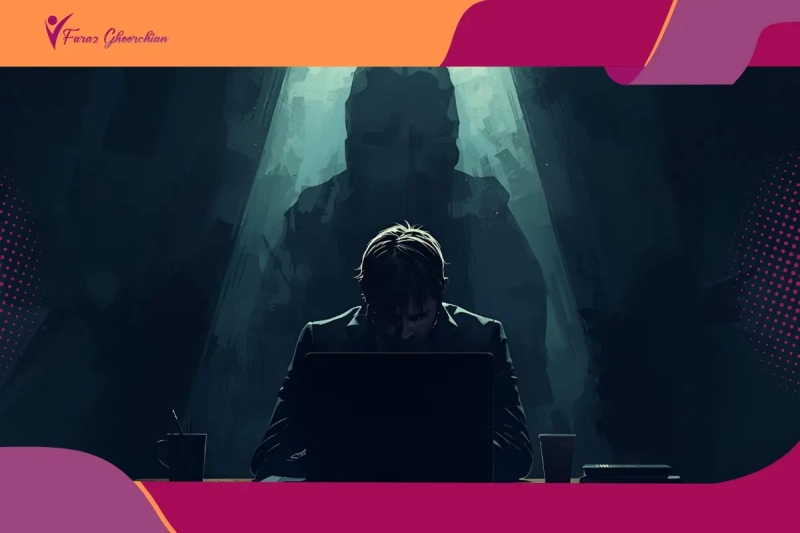- 1. Introduction: Why Digital Detox is the Missing Piece in Sexual Habit Management
- 2. Understanding the Link: Screen Time, Dopamine, and Sexual Urges
- 3. Medical Advice: Why Avoiding Screens Aids Quitting Porn & Masturbation
- 4. How Social Media Triggers Sexual Urges
- 5. Nighttime Screens: How Screen Time Before Bed Affects Sexual Urges
- 6. Smartphone Detox and Digital Boundaries: Practical Steps
- 7. Offline Hobbies and Lifestyle Changes to Overcome Porn Addiction
- 8. Mindfulness, Self-Control, and Dopamine Reset through Digital Detox
- 9. Conclusion: Embracing a Tech-Free Lifestyle for Lasting Sexual Health
- 10. FAQs
Introduction: Why Digital Detox is the Missing Piece in Sexual Habit Management
Most people don’t realize how much their phones and constant scrolling shape their habits, especially when it comes to urges nobody likes to talk about. One guy, trying to quit late-night browsing, joked that his “phone had a sixth sense for timing”. Whenever he felt bored or stressed, he’d end up back in the same cycle. This is where the idea of a Digital Detox for Sexual Habit Management really hits home. Instead of relying on willpower alone, he made a point to reduce screen time to stop porn urges, sometimes just by leaving his phone in the kitchen. The first week wasn’t easy, but by day seven, he noticed he felt more rested and less distracted. It’s not magic, but the change is real and worth the awkward start.
Understanding the Link: Screen Time, Dopamine, and Sexual Urges
Ever notice how your thumb just keeps scrolling, even when you’re not really interested in what’s on the screen? A lot of people don’t connect the dots between screen time and those restless sexual urges, but there’s more going on beneath the surface than most realize. The brain loves novelty, and every tap or swipe on a phone serves up a quick rush of dopamine. It’s basically training people to want more stimulation, more excitement, sometimes more trouble sleeping. That’s part of why screen time affects sexual urges before bed for so many. Someone once said, “I never thought social media would have anything to do with my habits, but the connection is real.” By aiming for a dopamine reset through digital detox, folks start to see how their routines shape their urges. Cutting back on screens, especially at night, can really help people rewire their brain from porn addiction and break the cycle that makes everything feel so automatic. Sometimes, a little less screen time is all it takes to start feeling more in control.
Medical Advice: Why Avoiding Screens Aids Quitting Porn & Masturbation
A lot of people don’t realize just how much their screens set them up for struggle when trying to quit certain habits. There’s a reason so many therapists and even doctors now tell folks to reduce screen exposure if they’re serious about change. In fact, medical advice for quitting porn often includes cutting back on digital input to avoid constant triggers and overstimulation. One counselor once put it this way: “It’s not just about willpower; sometimes, your environment is working against you.” Here’s what really stands out:
- Random images or ads on social feeds can make the whole masturbation side effect situation worse, popping up when least expected.
- Even a few minutes of scrolling at night lowers self-control, and suddenly those urges don’t seem so easy to ignore.
- Backing off from screens gives the brain a break, letting it naturally reset and slowly rebuild some willpower.
- Plus, less digital noise leaves more space for healthier stuff, like hobbies or real conversations, that actually stick.
Over time, people often begin to notice the benefits of a tech-free lifestyle for sexual health, including more stable moods, better sleep, and fewer impulsive urges. Sometimes it’s those small changes, not just big resolutions, that turn the tide for good.
Ask anyone who’s found themselves stuck in a loop with screens and it’s usually the same story. It rarely starts out as a problem, but over time, the pull gets stronger. The behavioral psychology of screen porn addiction isn’t just about what’s on the screen; it’s about how quickly the brain grabs hold of those quick dopamine hits. One person described it as “reaching for my phone almost without thinking, especially if I was stressed or lonely.” These moments start to add up, and before long, it can feel like one of those stubborn bad habits that sneak in quietly. What makes it tricky is that the brain actually learns to crave those fast rewards, even when they come with regret. Over time, the connection between porn addiction and mental health becomes harder to ignore, especially when stress, anxiety, or mood dips follow a binge. The good news? People really can rewire brain from porn addiction if they notice their triggers and make small, real-life changes. Many also find that porn recovery improves focus and energy, giving them more clarity in everyday life. Understanding these patterns is often the missing piece that makes a digital detox actually work.
How Social Media Triggers Sexual Urges
Anyone who’s spent time scrolling knows how social media can throw curveballs. One friend once joked that “it’s like your feed just knows what will catch your eye.” Sometimes, a single suggestive post or ad can spark thoughts that weren’t even on the radar a minute earlier. That’s the thing with social media triggers for sexual urges; they sneak up, no matter how much someone wants to avoid them. For folks who are trying to improve self control by quitting screen porn, it gets tricky fast. Even if someone swears off explicit content, the endless stream of eye-catching images or subtle flirting on their feed can wear them down. That’s why many find it helpful to avoid sexual triggers from screens altogether by taking breaks or limiting certain platforms. Some people find that a digital detox for sexual habit management or just deleting one app for a week actually helps when they’re serious about quitting masturbation and breaking old patterns. It’s not easy, but it’s doable.
Nighttime Screens: How Screen Time Before Bed Affects Sexual Urges
There’s something weirdly familiar about lying in bed, phone in hand, telling yourself it’ll just be five more minutes. Next thing you know, it’s midnight and the mind feels restless. Most people don’t think much about how screen time affects sexual urges before bed until they notice it’s become a routine. Someone once joked that scrolling late at night turns their brain into a vending machine for random cravings, especially if they’re tired or a bit lonely. That’s actually pretty close to the science. Blue light keeps the brain awake and cravings hit harder when self-control drops. It’s no wonder so many start asking, Why You Masturbate More When You’re Tired or Sleep-Deprived. Swapping out the phone for a book or some quiet music isn’t easy, but for anyone curious about digital detox for sexual habit management, it’s often the first step to sleeping better and feeling less controlled by old urges.
Smartphone Detox and Digital Boundaries: Practical Steps
Chris, a teacher from Chicago, once admitted he got tired of how often his phone seemed to be running the show, especially at night. His first step into a real smartphone detox to quit masturbation? Tossing his phone into a kitchen drawer after 9 p.m. No app, just old-school out of sight, out of mind. His results weren’t perfect, but he started sleeping better and didn’t find himself chasing “likes” or falling into social media triggers for sexual urges so often. Here are a few other tricks real people say helped:
- Turning off group chats and random notifications helped quiet down the digital noise, especially in the evenings.
- Keeping the charger in another room forced him to break that mindless habit of scrolling before bed.
- He tried using those screen timers but sometimes ignored them; it was the act of noticing the urge that mattered for digital detox for NoFap success.
- Getting outside for a walk or planning a quick call with a friend worked better than doomscrolling for him.
- He and his roommate set house rules; After dinner, no phones at the table. Setting tech boundaries to control urges felt less like a punishment and more like teamwork.
What worked for Chris wasn’t some miracle cure, but real tweaks that made those urges easier to spot and manage, a day at a time.
Offline Hobbies and Lifestyle Changes to Overcome Porn Addiction
Not long ago, Mark, who swore he’d never be the “hobby guy,” shared how joining a weekend soccer game totally changed his approach to evenings. Instead of fighting off old routines alone, he started seeing how offline hobbies to replace masturbation could actually be fun. He’s not alone, either. A lot of people find that just picking up something hands-on, like building models, hiking, or even learning to cook, keeps their mind busy and away from screens. The big surprise is that over time, these new activities help with digital detox for sexual habit management in a way that doesn’t feel forced.
What really makes the difference are small, steady lifestyle changes to overcome porn addiction. Some folks join group classes or take up running, noticing they’re less tempted after a good sweat. One friend joked that sex benefits exercise isn’t just a clickbait headline because moving more actually does wonders for energy and self-confidence. At the end of the day, these new routines are less about avoiding something and more about finally feeling interested in life again.
Mindfulness, Self-Control, and Dopamine Reset through Digital Detox
Anyone who’s tried a bit of mindfulness knows it’s not just about closing your eyes and breathing. It’s about catching yourself in those tiny moments, like when the phone’s calling your name out of pure habit. A friend once admitted he started practicing mindfulness to reduce digital sexual urges after realizing most urges faded if he waited just a couple of minutes. Building self-control felt less like a fight and more like noticing a wave and letting it pass. The real turning point came with a true dopamine reset through digital detox by going offline for an hour or two each night. Instead of jumping to every alert, he followed a loose daily digital detox schedule for porn recovery, finding that focus and calm gradually returned. He also noticed how reducing screen time and anxiety in porn recovery went hand in hand, especially during the first few weeks. He said it wasn’t magic, but after a while, everything from cravings to anxiety seemed quieter. That small pause before reacting really did make all the difference.
Conclusion: Embracing a Tech-Free Lifestyle for Lasting Sexual Health
After a few weeks without late-night scrolling, one guy admitted he felt something he hadn’t in a while. It wasn’t complete silence, but a kind of mental stillness. That’s when he realized his tech-free lifestyle for sexual health wasn’t just helping with urges, it was helping him breathe easier. People often think a digital detox for sexual habit management is about restriction, but it’s more about making room. Less noise. Fewer triggers. More space for connection. And yes, more sleep. Over time, that shift can spark something unexpected. Many find that porn detox improves romantic relationships in ways they didn’t see coming.
FAQs
1- Does digital detox really help stop porn urges?
Yes, taking breaks from screens helps reduce exposure to triggers and supports the brain’s recovery. Many notice fewer cravings as they develop healthier routines.
2- What are the best offline hobbies to replace masturbation?
Activities like sports, art, music, and volunteering provide distraction and a sense of achievement. These hobbies support lifestyle changes to overcome porn addiction and boost confidence.
3- How does screen time before bed affect sexual urges?
Staring at screens late at night often increases cravings and disrupts sleep. Creating a nightly routine without digital devices can make urges easier to manage and improve rest.
4- Can digital detox improve romantic relationships?
Absolutely. As urges decrease and focus returns, many find that porn detox improves romantic relationships and deepens real-world connection.















